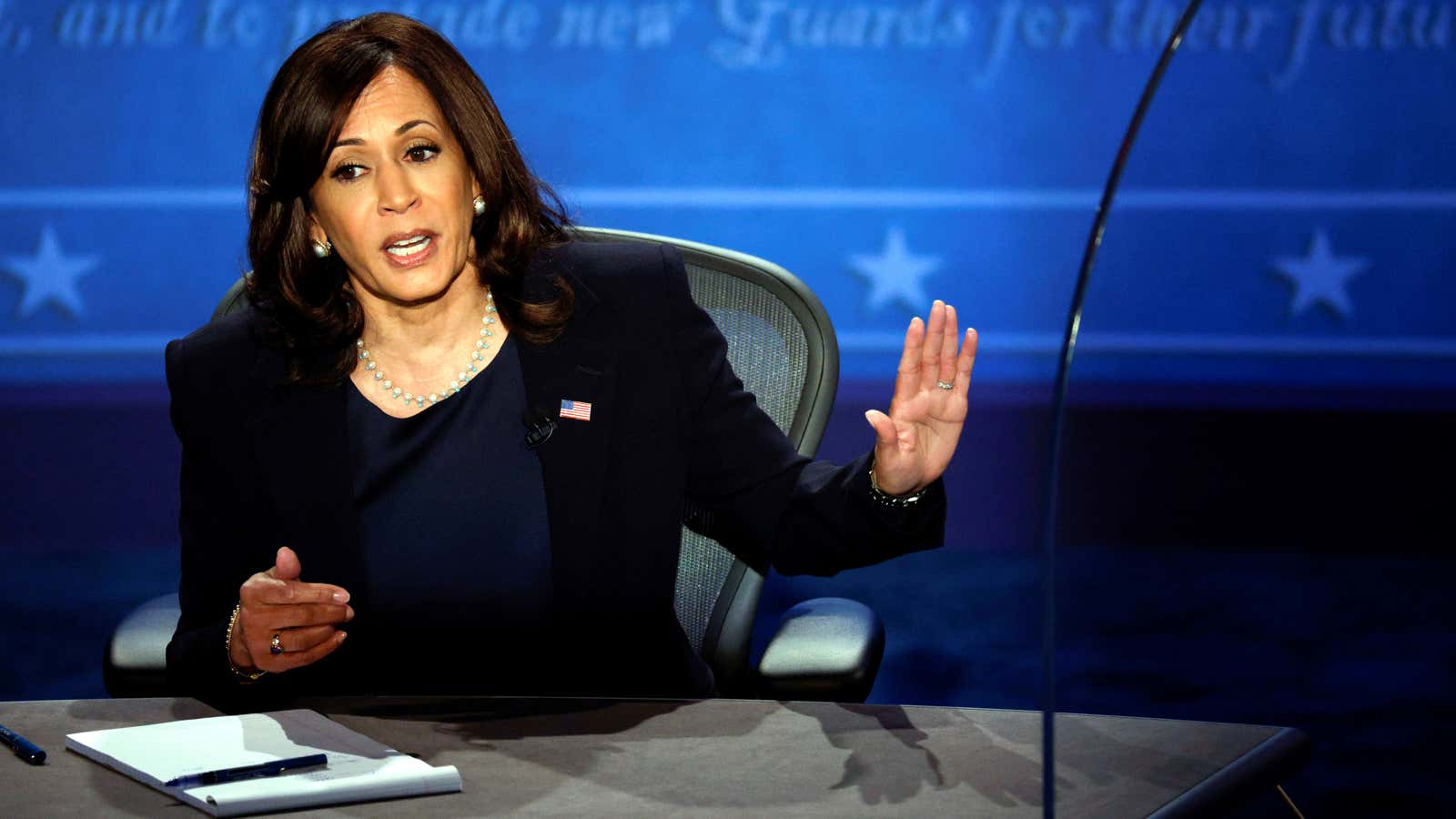California senator Kamala Harris faced vice president Mike Pence in their only debate—one that helped illuminate what kind of vice president the US will have if Joe Biden defeats Donald Trump in the Nov. 3 election.
From the first question to the last, Harris pilloried the Trump administration more sharply and concisely than Biden had in his encounter with Trump last week.
On the handling of the pandemic now sweeping through the White House, Harris addressed viewers directly: “On January 28, the vice president and the president were informed about the nature of this pandemic… they knew what was happening, and they didn’t tell you.” And then she addressed Pence: “You respect the American people when you tell them the truth.”
The vice presidency has always been a dubious privilege, balancing tedious ceremonial work with tantalizing chance of succession to the top spot. The nominee is often selected on the basis of coalition politics, not their future work in the White House. And yet vice presidents have proven influential in the business of governing.
Vice president Dick Cheney played a major role, some said too large, in the foreign policy of George W. Bush’s administration. Biden, as president Barack Obama’s deputy, oversaw stimulus spending and demanded to be the last advisor consulted on difficult decisions. Trump’s White House has been far different from other modern administrations in its lack of a coherent policymaking process, but Pence has made a mark leading intergovernmental efforts on space policy and plotting a return to the moon.
It’s not clear yet if Harris will take on a specific portfolio under Biden. Her record as a prosecutor and her role as the most prominent Black politician in the Democratic party suggest that she will play a role in criminal justice reform. She is seen as close to the technology industry at a time when her party is looking to rein in the largest Silicon Valley firms.
More insight may come from looking to relationship dynamics. When Biden was vice president, he often played Obama’s genial foil in negotiations with Republicans in Congress, calling on his decades of experience serving there. But his role didn’t always result in successful deals, and some of his critics see his insistence that Republicans will compromise with him post-Trump as naive.
Harris may find herself playing the opposite role to a president Biden. Her biggest success as a senator was in her prosecutorial interrogations during hearings, where she displayed the ability to cut through bloviating to make concise points. Her brightest moment as a presidential candidate came when calling out Biden himself for opposing bussing to integrate schools.
That clash dominated media analysis of Biden’s choice of VP—photographers even caught a shot of the former vice president’s notes that said “DO NOT HOLD GRUDGES” in reference to the senator. His willingness to accept a critic on his ticket endeared him to some.
And it may be a preview of Harris as the blunt truth teller in contrast to Biden the glad-hander. Though she is not seen by many progressive Democrats as a natural ally, she may find herself the voice reminding Biden of his commitments if he is tempted to accept an easy compromise, or the bringer of hard news that Biden may not prefer to deliver.
Put it this way: The former vice president on top of the ticket is known for his opposition to malarkey, but his old-school political style lends itself to hot air. Harris may be the White House official who cuts to the chase.
